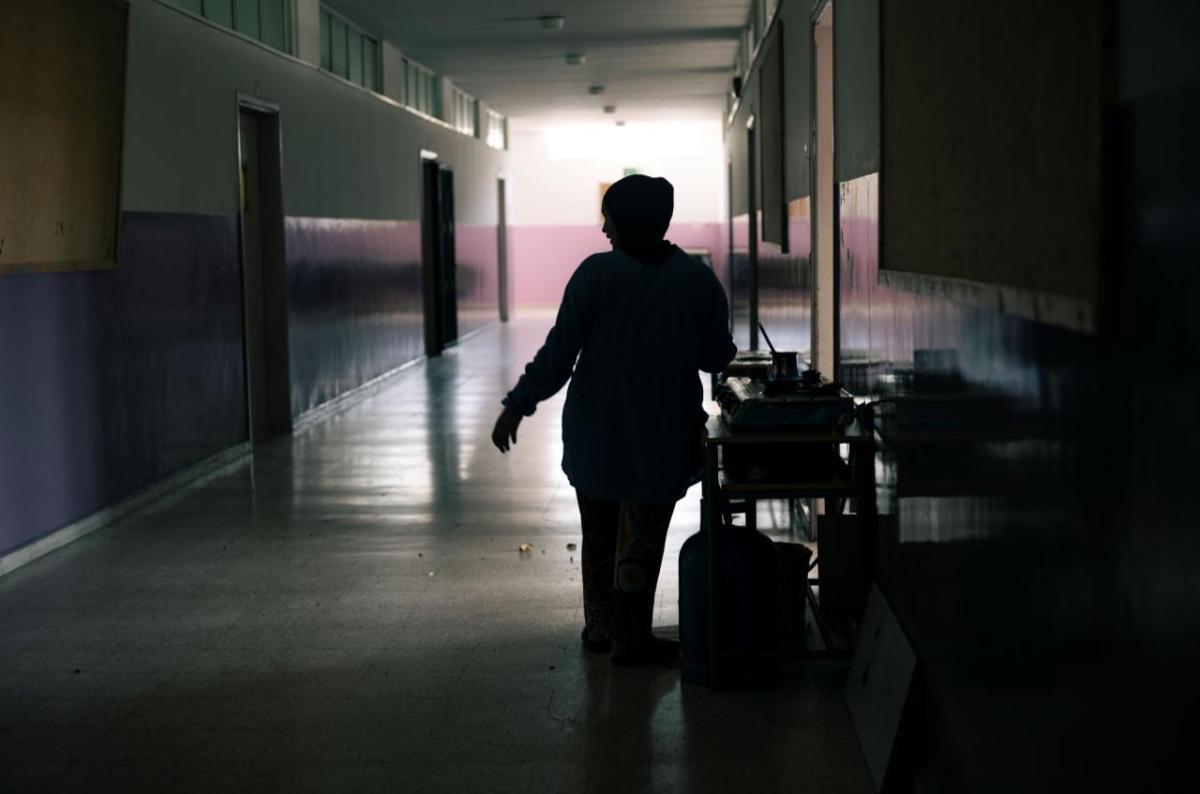
The Conflict In Lebanon
We spoke with our Country Director for Lebanon, Suzanne Takkenberg, about the conflict and our emergency response.
What's the scale of the crisis?
The escalation of hostilities in Lebanon is unprecedented. Our teams have been on the ground since 2006, working especially in the South and Bekaa Valley, but we have never faced a humanitarian crisis as severe as this one. Over 1.2 million people have been displaced, with 809,000 people internally displaced and nearly 425,000 Syrians and Lebanese crossing the border into an unsafe Syria to flee conflict, hunger, and death. Every day and night, more damage is caused, and more lives are taken. The conflict is plunging hundreds of thousands of people into despair and the country into constant hardship and fear.
How has the conflict escalated?
The crisis is only getting worse and worse. As of Oct. 18, the situation has intensified, with a total of 10,415 attacks recorded since the onset of hostilities. Over 2,400 people have died and over 11,300 have been injured. Less than a week ago, an entire village was completely destroyed by soldiers and two dozen buildings were entirely demolished. Over the past two weeks, airstrikes have hit residential and densely populated areas, including the capital city of Beirut. Although mass evacuations have begun, countless civilians are still trapped in southern towns since safe passages are not guaranteed. The hostilities have prevented humanitarian workers from providing essential services and saving lives.
What upcoming risks do you anticipate?
The number of displaced people is putting immense pressure on limited resources. Especially as winter approaches, families will significantly suffer without access to shelter, clean drinking water, hygiene kits, and sanitation facilities. Damage to water infrastructure especially has exacerbated the threats of waterborne diseases. At least 28 water facilities have been damaged, cutting off water for 360,000 people. One cholera case was confirmed by the Ministry of Public Health, as well as scabies and lice. Food insecurity is worsening, with soaring food prices and a growing number of families unable to purchase basic necessities. Medical and psychosocial support is also urgently needed, for both affected communities and humanitarian staff facing serious emotional strain.
How are families in Lebanon coping with the crisis?
Communities are trying their best to share resources, organize local relief efforts, and depending on humanitarian aid. Nevertheless, with rising displacement, overcrowding, and insufficient access to medical care and essentials, families are experiencing extreme distress. Despite their resilience, the worsening crisis is pushing people to their limits. Many of our staff members have been displaced and lost their homes. Despite their grief, they remain committed, and we are doing what we can to support them with their mental health during this dire time.
How are our staff responding?
In coordination with Lebanese authorities and the international humanitarian community, our staff have provided emergency assistance to nearly 30,000 displaced individuals since Sep. 23. We've distributed over 528,000 gallons of water and reached over 20,000 individuals with water, sanitation and hygiene (WASH) kits. We're also supporting pregnant women and new mothers with nutrition services including screening, awareness, and supplementation. We've distributed 27,000 food rations to 10,000 people, including hot and cold meals, food parcels, and ready-to-eat kits. We've also given nearly 8,000 individuals mattresses, blankets, pillows, and necessities like fuel. Action Against Hunger has worked in Lebanon since 2006 and is dedicated to responding immediately and efficiently to the crisis and saving as many lives as possible. In the meantime, we urge all parties to cease hostilities and prioritize humanitarian law, ensuring the protection of civilians and health workers and allowing for unimpeded humanitarian access.
About Action Against Hunger in Lebanon
Action Against Hunger has been working in Lebanon since 2006. Last year, staff reached nearly 160,000 people with interventions focused on clean water and safe sanitation. Nearly 1.5 million Syrian refugees have taken shelter in Lebanon and now live in informal settlements and camps for internally displaced persons (IDPs). Action Against Hunger works on the ground in these communities, providing essential nutrition services and ensuring that the most vulnerable families have access to healthcare and livelihood support.
**
Suzanne Takkenberg, Country Director of Action Against Hunger's Lebanon office, spoke to Zain Asher and Bianna Golodryga on CNN's One World on the current humanitarian situation in the region and how Action Against Hunger is helping people who have been displaced.
Watch the video here: Action Against Hunger's Lebanon Country Director speaks on CNN's One World - YouTube
Photo by Lys Arango
Kenneal Patterson, Senior Communications Associate in conversation with Lebanon Country Director Suzanne Takkenberg

Legal Disclaimer:
MENAFN provides the
information “as is” without warranty of any kind. We do not accept
any responsibility or liability for the accuracy, content, images,
videos, licenses, completeness, legality, or reliability of the information
contained in this article. If you have any complaints or copyright
issues related to this article, kindly contact the provider above.


















Comments
No comment